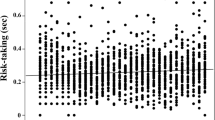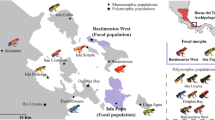Abstract.
During close bodily contact, many species transfer substances that influence the behaviour or physiology of conspecifics. Such transfer is especially common during courtship and copulation. When this is the case the involved bioactive substances are favoured by sexual selection because their effects include increased egg production, inhibited remating, and changed sperm transport or storage in the partner. The direct mode of action of these substances is fundamentally different from that of pheromones and nuptial gifts. Therefore, the term allohormone is introduced here. An allohormone is defined as a substance that is transferred from one individual to another free-living member of the same species and that induces a direct behavioural or physiological response, bypassing external sensory organs. Although we emphasise the importance of allohormones in reproductive processes, allohormones may also have important functions outside of copulation.
Similar content being viewed by others
Author information
Authors and Affiliations
Additional information
Electronic Publication
Rights and permissions
About this article
Cite this article
Koene, J.M., ter Maat, A. Allohormones: a class of bioactive substances favoured by sexual selection. J Comp Physiol A 187, 323–326 (2001). https://doi.org/10.1007/s003590100214
Accepted:
Issue Date:
DOI: https://doi.org/10.1007/s003590100214




